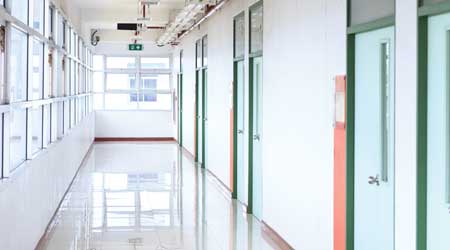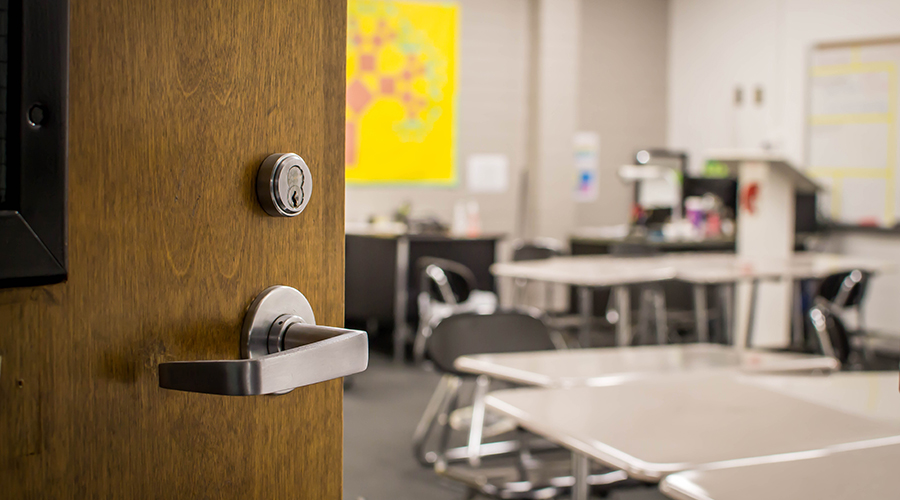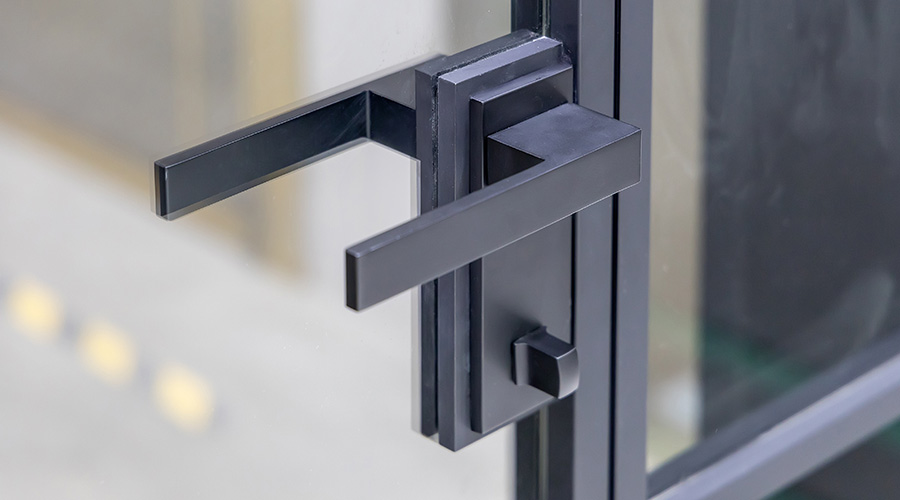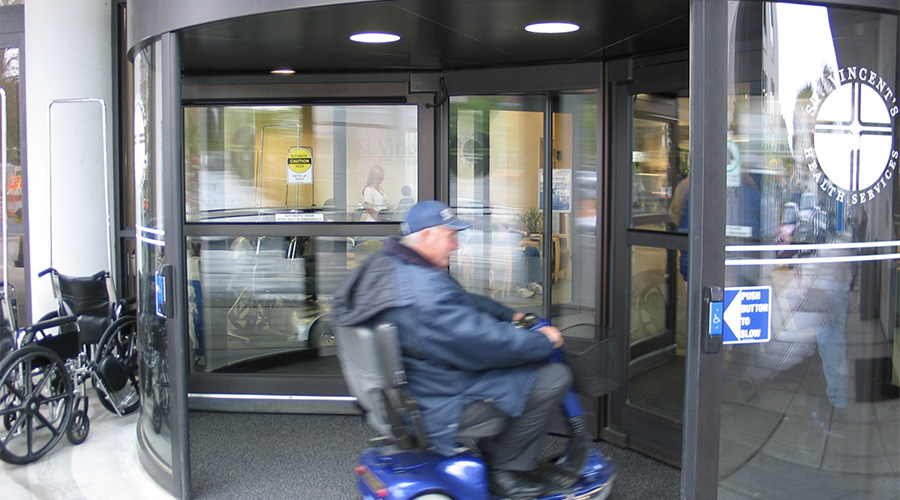4 Steps to Evaluating Security Risks
When selecting doors and door hardware products, follow this advice to assessing and prioritizing the risks and weaknesses in a system.
A strategic approach to door and hardware systems can help facility managers identify weaknesses, as well as the measures that can reduce them. The ACCESS approach, developed by Tom Westerkamp, a retired consultant and author of Maintenance Manager’s Standard Manual, 6th Edition, focuses on assessing and prioritizing the risks and weaknesses in a system to minimize risk. Among the steps:
1. Review architectural plans and construction specifications, including for any modifications or additions. Identify assets and the location and means of entry and egress.
2. Identify the assets to protect, including occupants and property, as well as the facility itself. Include electrical and mechanical equipment, data (both electronic and on paper), and inventory.
3. Determine the events that could jeopardize the safety and security of each asset, and the odds of each occurring. Include those, like a terrorist strike, that are unlikely to happen, but would have serious consequences if they did. Also consider smaller, less serious events that occur more frequently, such as storms, thefts, fires, and power outages.
4. Review the ability of existing security systems to handle these challenges. How protected is the facility? What would be the consequences if the systems fell short? What steps are needed to improve the systems? Address the highest probability occurrences with the greatest consequences first.''Karen Kroll, a contributing editor for Building Operating Management, is a freelance writer who has written extensively about real estate and facility issues.
Karen Kroll, a contributing editor for Building Operating Management, is a freelance writer who has written extensively about real estate and facility issues.
Related Topics:















